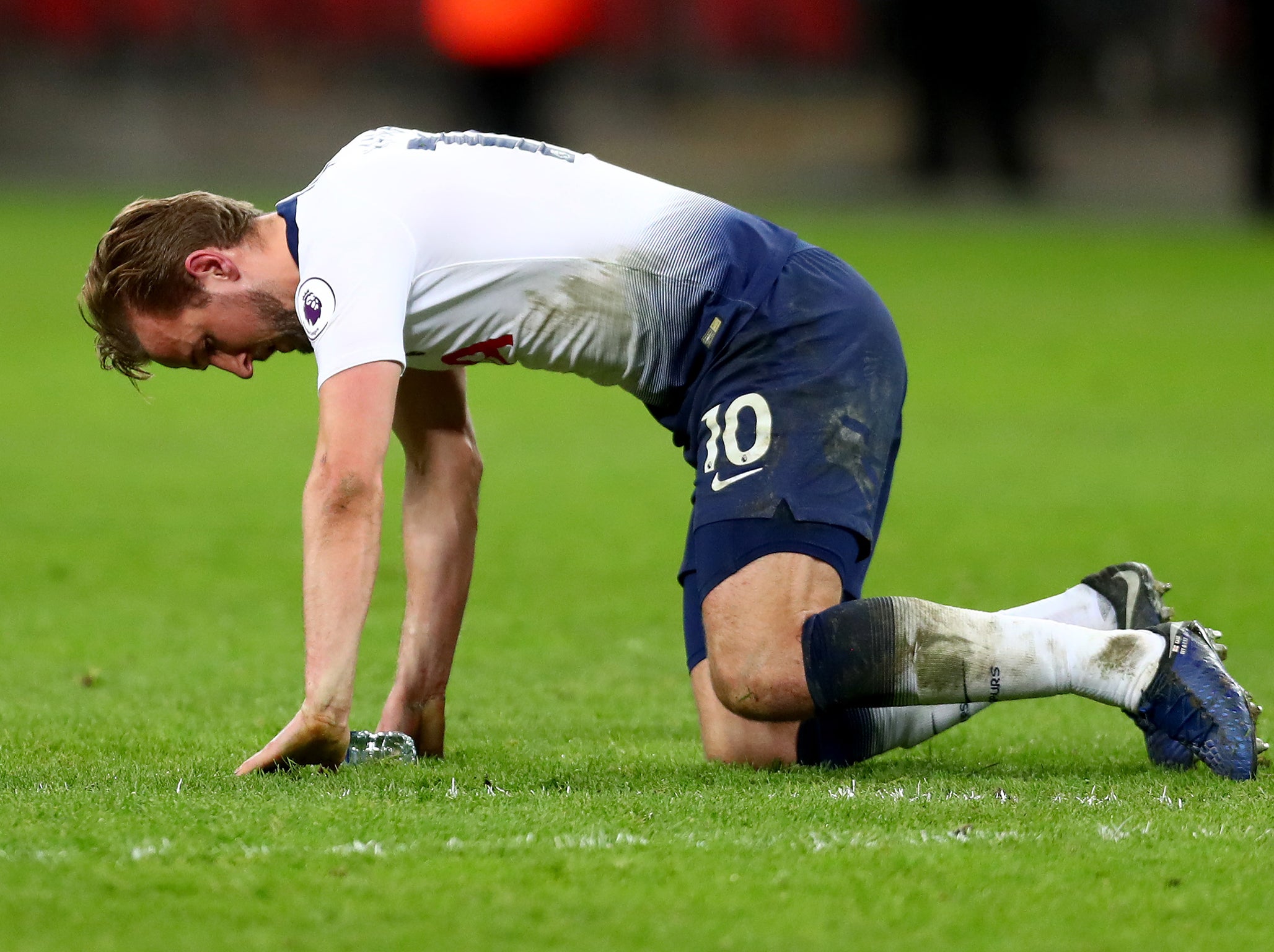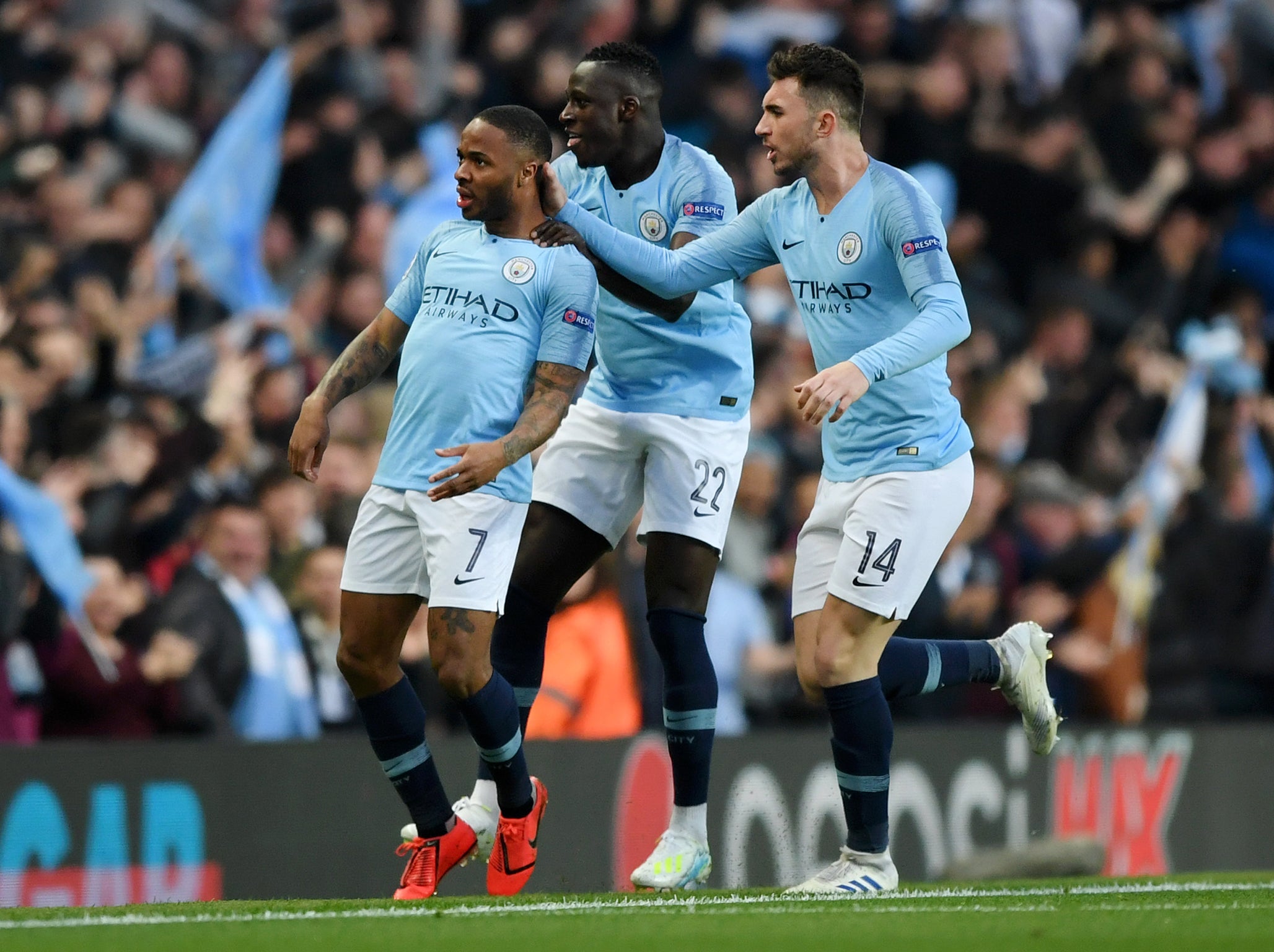Man City vs Tottenham trilogy: 10 things we learned from Premier League and Champions League series
From Pep Guardiola and Mauricio Pochettino’s growing rivalry to the absence of Harry Kane and roles of Ilkay Gundogan and Leroy Sane, here’s 10 thins we learned from the three results over the last 12 days

Your support helps us to tell the story
From reproductive rights to climate change to Big Tech, The Independent is on the ground when the story is developing. Whether it's investigating the financials of Elon Musk's pro-Trump PAC or producing our latest documentary, 'The A Word', which shines a light on the American women fighting for reproductive rights, we know how important it is to parse out the facts from the messaging.
At such a critical moment in US history, we need reporters on the ground. Your donation allows us to keep sending journalists to speak to both sides of the story.
The Independent is trusted by Americans across the entire political spectrum. And unlike many other quality news outlets, we choose not to lock Americans out of our reporting and analysis with paywalls. We believe quality journalism should be available to everyone, paid for by those who can afford it.
Your support makes all the difference.1. Does Pochettino have Guardiola’s number?
When Mauricio Pochettino was Espanyol manager and Pep Guardiola was at Barcelona, he was known as the “anti-Guardiola” in the local press for his ability to find Barca’s weakness. There was something about his aggressive pressing football, taking the fight to their rich opponents rather than sitting back, that brought some famous results.
This month it feels as if he has found that knack again. Yes, City scored more goals over these three games, and extended their Premier League winning streak over Spurs to four games. But Spurs recorded a historic two-legged triumph over City, one built on aggression at home and pressing into mistakes away. The financial gulf between the teams was equalised and Spurs came out on top. Nothing will hurt Guardiola more than that.
2. Guardiola’s Champions League obsession is very real
Pep Guardiola is obsessed with the Champions League. Everyone knows this and it was abundantly clear over these two games, especially as he charged around the technical area on Wednesday night, dancing with delight when Raheem Sterling scored the apparent winner, sinking to the floor when it was disallowed. But it also seems that the criticism of Guardiola’s Champions League record has got to him.
Before the second leg Guardiola kept insisting that he was a “failure” in this competition, as if trying to take ownership of the criticism himself. Even on Saturday afternoon, after beating Spurs, Guardiola again referred to how he has not won the competition since 2011. “It is a big failure in my career, I have to accept it.”
Mauricio Pochettino, now into the semi-finals, a stage Guardiola has not reached since 2016, seemed more relaxed about the whole thing.
3. Son has eased the absence of Kane
Hearts sunk at White Hart Lane when Harry Kane hobbled off in the first episode with another ankle injury. But it was difficult to watch Son Heung-min playing the next few games and still feel that Spurs were desperately missing the England captain. Because for the last few months, Son has been Spurs’ best player, and it is not even close.
He scored three of their four goals in the Champions League tie, cutting City to ribbons with his elusive movement. There are few better strikers at running in behind right now than Son, and few better finishers from just outside the box. His second on Wednesday was the definitive Son finish.
On Saturday his movement was just as good but his finishing was not, and he went home goalless for once. But City were terrified of him all afternoon.
4. Can this improved defiance be sustained?
There is a theory at Spurs that sometimes the absence of Harry Kane encourages his team-mates to raise their level. Because the players are so keen to prove that they can win without him. And conversely when he comes back into the team they drop their game, subconsciously sensing that their saviour is back.
That is how it felt watching these games, as Son led a late surge in the first leg and then every Spurs player played out of their skins in the second leg. It was as if the circumstances, coming into that game without Kane, making them even narrower favourites, sparked Spurs into a performance beyond their expected levels. But can they possibly sustain it?

5. Spurs defenders set the standard
Few players represent that level of super-human performance more than Toby Alderweireld and Jan Vertonghen. Maybe that should be no surprise now, but it feels like this season they have set new standards of leadership, consistency and application, especially in recent weeks. In the first game of these they kept a clean sheet against City – only the third team to do that this season after Chelsea (twice) and Liverpool.
In the second game they did ship four goals, but they still had to hold City off when they were threatening to kill the game in the second half. Then on Saturday they led another rearguard, keeping Spurs in the game, surviving City’s flurries, even though they still ended up losing. Aymeric Laporte has had a stellar season, but Vertonghen and Alderweireld have been setting the standard in the Premier League for years.
6. Gundogan is proving a liability as much as he is a luxury
Ilkay Gundogan is a brilliant footballer, but he might just be the best luxury player in the league. There are not many out there who can match him for technical quality, vision, and the ability to dictate the pace of play. But there is one problem: he can’t defend.
Guardiola is always desperate to get him in the team but his inability to shut down opposition counter-attacks means he can only be risked as the sitting midfielder in games when City have all of the ball. Son’s two killer away goals on Wednesday came from counters down the middle, the type of break that does not happen when Fernandinho is on the pitch. Saturday followed the same pattern, as Spurs sliced through City early on. Only when Fernandinho came on did City bolt the door.
It raises the issue for Guardiola at Old Trafford: can he afford to pick his most consistent midfielder?
7. Winks’ stock rises with his absence
There was only one game this series when Spurs had the upper hand in midfield against City. And that was the first one, when Harry Winks played. He gave Spurs a fluid mobility in the middle of the pitch, a constant buzz, as they swarmed over City from the start. And without that strong start, who knows how that tie would have ended up.
But it was especially impressive because Winks was playing with an injury, a pain in his hip that has built up over this busy season. But having played in the first game Winks then missed the next two, and Spurs were overrun in that part of the pitch. They are not the same team without him, and while Pochettino would love him back, Winks’ pain needs to be monitored every day, as they hope he will recover.
8. How long can Sane stick with being the supersub?
Leroy Sane is one of English football’s most entertaining match-winners but Guardiola does not trust him in the biggest games. And that has never been more clear than it was over these three games.
Sane came on in the last minute of the first game, with six minutes left of the second game, even as City chased a crucial equaliser, and then with 24 minutes left of the league game. But that is in keeping with how he has been used recently. In the last three months he has only started eight of City’s last 21 games, the most recent of those against Swansea City, Cardiff City and Crystal Palace. Sane has found himself, after a brilliant season last year, relegated to the role of untrusted supersub against the best opponents. It does not feel like a sustainable role for a player of his quality.

9. VAR has changed football forever
Up until this week VAR has felt like a foreign invention that the English could get away with ignoring for another year two. Not anymore. By making three dramatic interventions in the two Champions League games, helping to decide the biggest all-English European tie since the 2008 Champions League final, VAR has become an unavoidable factor in football. And it has changed the game forever.
The handball given against Danny Rose in the first game has helped to set a new standard for ball-to-hand decisions, effectively re-writing the law. Now all ball-to-hand decisions are appealed, if not given, as Toby Alderweireld and Kyle Walker found on Saturday. The fact that City and Spurs fans were taunting each other with VAR chants on Saturday shows how big a part of our thinking it now is. But nothing was as telling as Guardiola snapping repeatedly at a reporter after the Saturday game, “don’t talk to me about referees”. Clearly Wednesday still rankles.
10. The super series is a sign of football’s future
Series are the future of football. We all know that the pyramid of the game is tapering, that the biggest teams increasingly only want to play each other. And as the clubs look for new formats to maximise these box office clashes, it feels inevitable that we will see more weeks like this one.
Two big teams meeting for three or even five matches, with only short breaks in between. Like an NBA finals or a World Series, they will develop their own large arcs and sub-plots, and they will be a far bigger media draw than the rich vs less rich, attack vs defence games that clog up our schedules as it stands. They could be played across the two teams’ grounds, or, more profitably, in neutral foreign venues. If you want a picture of the future, imagine Manchester City playing Tottenham in Miami — forever.
Join our commenting forum
Join thought-provoking conversations, follow other Independent readers and see their replies
Comments